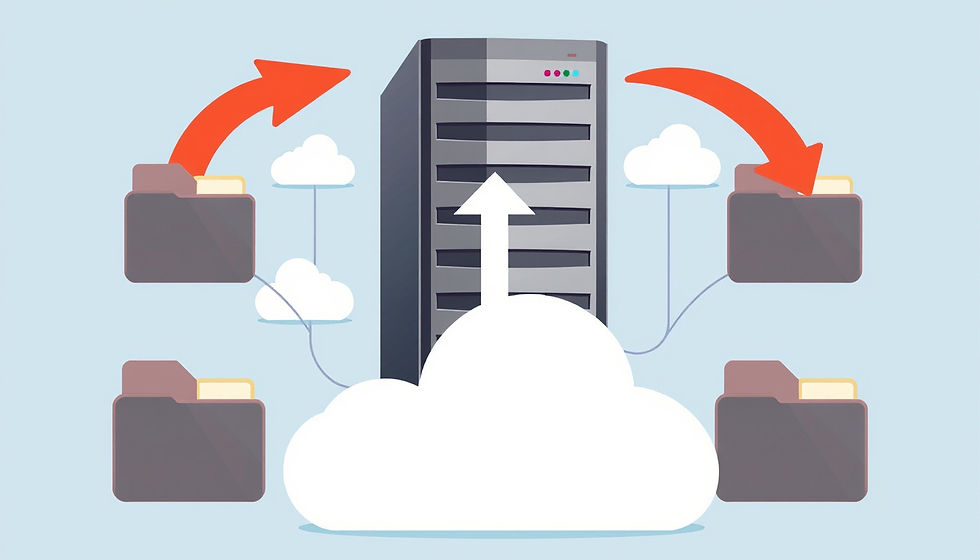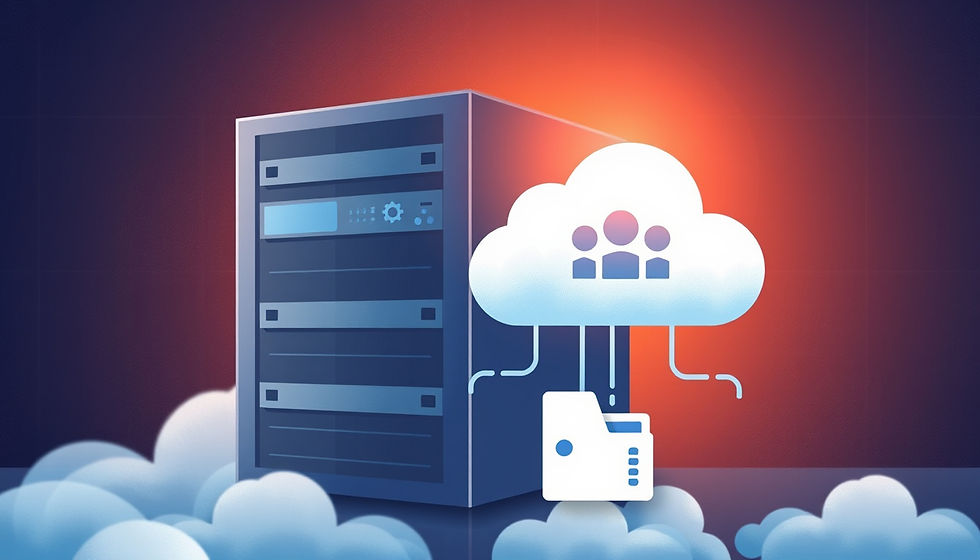Is Your Old File Server Limiting Business Growth and What Are the Alternatives
- Manas Dutta
- Jun 10
- 3 min read
Updated: Jun 16
If your business is still running on an old-school file server in the office—or even in a server closet—you're not alone.
We work with small and mid-sized businesses across Toronto and the GTA, and many of them are still relying on the same setup they’ve had for years:
A local server storing company files
A VPN for remote access
Manual backups (when someone remembers)
While this may have worked just fine 5–10 years ago, in today’s world of hybrid work, rising cyber threats, and remote collaboration, that aging file server is probably holding your business back more than you realize.
Slow and Clunky Remote Access
Let’s face it—VPNs are a pain. They’re slow, often unreliable, and create bottlenecks for anyone trying to access files outside the office.
If you’ve had employees complain about laggy file access while working from home—or struggled to connect during a meeting—you already know how outdated your system is.
We’ve worked with several Toronto firms whose remote access speed improved 3x after ditching the VPN and moving to cloud-based file storage.
Hidden Costs of Local File Servers
You might think maintaining a local file server is manageable in terms of cost, but it's often more expensive than it appears at first glance.
There are hidden costs most businesses don’t track closely:
Hardware upgrades and maintenance
Power and cooling
Licensing and backup software
IT labor to troubleshoot issues
Downtime during server failures or updates
And that’s before you factor in lost productivity when files can’t be accessed or when backups fail.
Most businesses save money long-term by moving to platforms like SharePoint and OneDrive—especially when combined with Microsoft 365, which you may already be paying for.
Backups and Security Are Fragile
Your on-prem server is only as safe as your last successful backup—and let’s be honest, how often are those tested?
If your data lives on one machine in one location, you're exposed to numerous risks:
Ransomware attacks
Data corruption
Physical damage to hardware
The reality is that relying on a local file server for backups can lead to catastrophic data loss. A switch to a cloud-based solution not only allows for more reliable backups but also offers greater security against threats.

Limited Collaboration Opportunities
Another significant drawback of using an old file server is the limitations it imposes on collaboration.
When teams are dispersed across different locations, it becomes increasingly challenging to work together effectively. Employees may encounter issues with version control, making it difficult to track changes and communicate efficiently within files.
By adopting a cloud-based file storage system, you can enable seamless collaboration among team members regardless of their location. Real-time updates and the ability to share documents easily reduce delays and improve workflow.
The Future is in the Cloud
As businesses evolve, so do their technology needs. A local file server can be limiting and often results in slower operations, security vulnerabilities, and increased costs.
Cloud solutions provide flexibility, scalability, and the ability to integrate with other tools that your business may already be using. Platforms like Microsoft 365 and Google Workspace enable not just file storage but also enhanced productivity tools, all while ensuring data accessibility from anywhere.
Additionally, cloud services often include built-in security measures and automated backups, simplifying your IT management.

Conclusion
In an increasingly digital world, clinging to an outdated file server can hinder your business growth.
By transitioning to modern file storage solutions, you can overcome barriers such as slow remote access, hidden costs, data vulnerabilities, and limited collaboration capabilities.
Considering the multitude of benefits cloud technology offers, it’s time to rethink your approach to file management. Not only will this move save costs and enhance security, but it will also empower your teams to work efficiently and collaboratively—no matter where they are located.
Make the change today and unlock your business's full potential by leaving behind that old file server. Embrace the cloud and step confidently into the future of work.




Comments